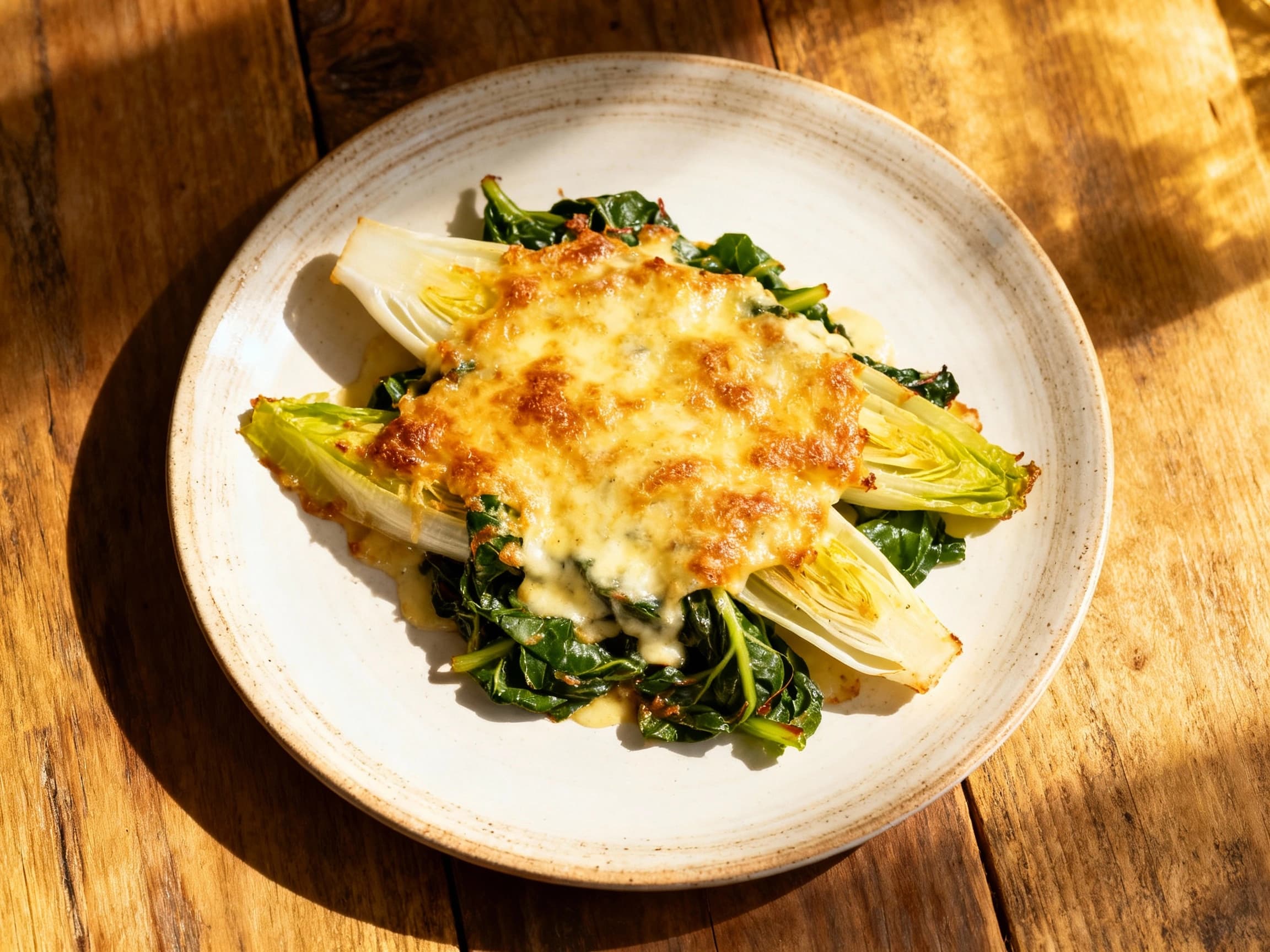
Endive Gratin
Gratin d'endives au jambon
- Country
- Belgium
- Region
- Not specified
- Recipes
- 3 Recipes
Origins & Characteristics of Endive Gratin
Endive Gratin, known in French as 'Gratin d'endives au jambon' and in Flemish as 'Gegratineerde witloof met hesp,' is a quintessential Belgian dish that transforms the slightly bitter Belgian endive into a comforting, elegant culinary experience. The preparation typically involves carefully wrapping each endive spear in a slice of cooked ham, then generously coating them in a rich béchamel sauce. This ensemble is then placed in a gratin dish, often topped with grated cheese, and baked until the top is golden brown and bubbling, and the endives are tender. Its origins are firmly rooted in Belgium, the birthplace of the Belgian endive itself. The endive was accidentally discovered in the 1830s by a Belgian farmer growing chicory roots, who noticed new shoots growing in his cellar. Its cultivation and popularity soared in the late 19th and early 20th centuries. The gratin preparation likely emerged as a way to mellow the endive's bitterness and make it more palatable, combining it with savory ham and creamy, cheesy sauce – ingredients that were becoming more accessible. It became a staple, especially during the colder months when endives are in season. This dish is a perfect example of how Belgian cuisine expertly balances flavors and textures, taking a humble vegetable and elevating it into a sophisticated and satisfying meal. It remains a beloved classic, featured in homes and restaurants across Belgium.
History of Endive Gratin
Belgian endive (witloof) was accidentally discovered in Brussels, Belgium.
Endive Gratin became a popular dish as the vegetable gained widespread culinary acceptance.
The classic preparation with ham and béchamel sauce was well-established and widely recognized.
A significant Belgian cookbook featured Endive Gratin, solidifying its place in national cuisine.


